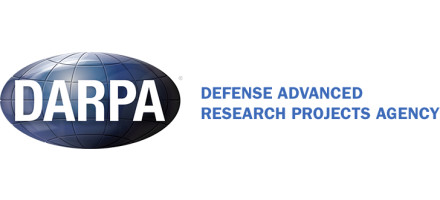DARPA turns to chemistry to innovate the next computing concept
NewsMarch 24, 2017

ARLINGTON, Va. The U.S. Defense Advanced Research Projects Agency (DARPA) has announced its Molecular Informatics program, which seeks a new paradigm for data storage, retrieval, and processing. The focus is to investigate and exploit the wide range of structural characteristics and properties of molecules to encode and manipulate data instead of the traditional way of using binary digital logic of computers based on the Von Neumann architecture.
“Chemistry offers a rich set of properties that we may be able to harness for rapid, scalable information storage and processing,” says Anne Fischer, program manager in DARPA’s Defense Sciences Office. “Millions of molecules exist, and each molecule has a unique three-dimensional atomic structure as well as variables such as shape, size, or even color. This richness provides a vast design space for exploring novel and multi-value ways to encode and process data beyond the 0s and 1s of current logic-based, digital architectures.”
Molecular storage concepts, such as those based on DNA sequences, have advanced in recent years and show promise for archiving digital data in a format that takes up extremely small physical space, Fischer adds. But DNA storage doesn’t allow for rapid retrieval and processing of selected portions of the DNA-encoded data without having to first decode the molecule-based data back into an electronic digital format to use with existing information systems.
Under the Molecular Informatics program, the primary technical challenge is the integration of dense storage concepts with processing of molecule-encoded information via completely new, non-binary information structures. The intent of the program is to explore such opportunities in the much broader design and encoding space of millions of molecules, which offers far more opportunity than do the four building-block molecules (As, Ts, Cs, and Gs) of DNA.
To achieve its goals, the program is looking for a diverse, collaborative community of researchers from fields including chemistry, computer and information science, mathematics, and chemical and electrical engineering. These integrated teams will need to answer foundational questions such as:
- How can data be encoded in molecules?
- What types of data operations can molecules execute?
- What does “computation” mean in a molecular context?
“Fundamentally, we want to discover what it means to do ‘computing’ with a molecule in a way that takes all the bounds off of what we know, and lets us do something completely different,” Fischer says. “That’s why we absolutely need the diverse knowledge of many different fields working together to jump into this new molecular space to see what we can discover.”
A webinar-based Proposers Day for Molecular Informatics will be held April 7, 2017. For additional information and registration details, please visit: https://go.usa.gov/xXKvQ.





